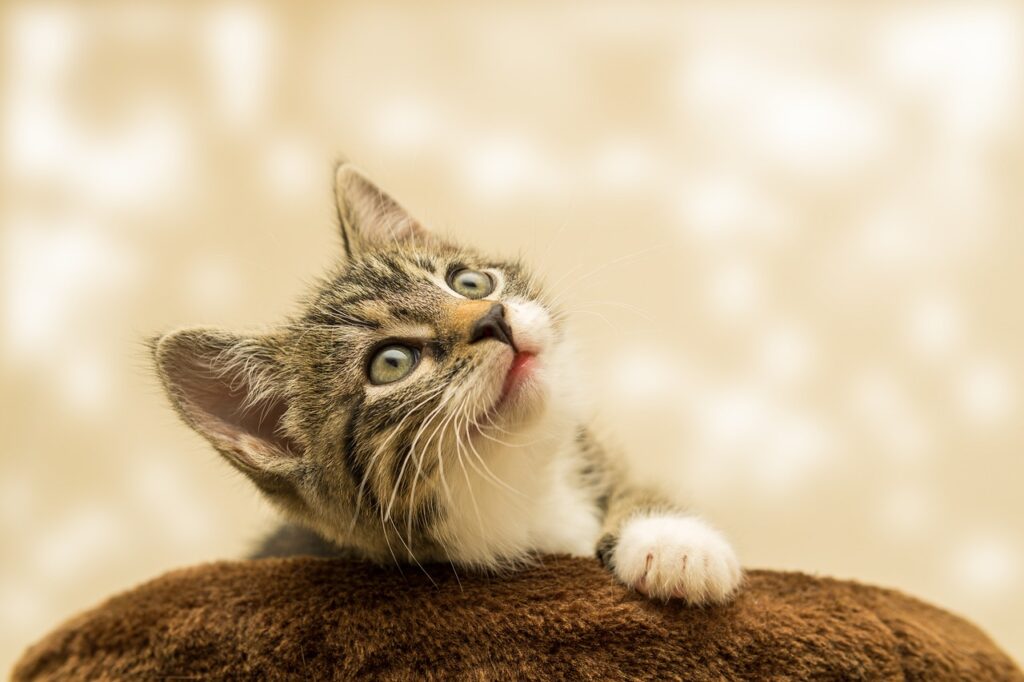Can Cats Eat Carrots? – Yes, They Can
Yes, cats can eat carrots, but they should be given in moderation. Carrots provide several health benefits for cats, including vitamins, fiber, and low-calorie content. However, it’s essential that these colorful veggies are prepared correctly to avoid any choking hazards. Cooked carrots are safer for cats as they’re softer and easier to digest.
Can Kittens Eat Carrots?
No, kittens should not eat carrots, especially when they’re very young and still nursing. The digestive system of a kitten is quite delicate, and it’s generally recommended to stick to specially formulated kitten food that provides the nutrients they require for growth. As they grow older and begin eating solid food, a small piece of cooked carrot can be introduced occasionally.
Things to consider when feeding carrots to kittens?
When feeding carrots to older kittens, always ensure they are cooked and cut into small, manageable pieces to prevent choking. Introduce carrots into their diet gradually to monitor any adverse reactions, and consult with a vet if in doubt. The primary diet of a kitten should always be a high-quality commercial kitten food.
Nutritional Benefits of Carrots for Cats – Why Carrots are good for Cats?
Vitamin A
Carrots are an excellent source of Vitamin A, which is vital for a cat’s vision, bone growth, and reproduction. This vitamin also supports skin, coat, and immune health.
Fiber
Dietary fiber found in carrots can aid in digestion and help prevent hairball formation. It contributes to a sense of fullness, which can be beneficial for weight management.
Antioxidants
Carrots have antioxidants like beta-carotene, which help fight free radicals in a cat’s body, potentially reducing the risk of certain diseases.
Hydration
The water content in carrots helps with hydration, which is particularly beneficial for cats as they tend to have a low thirst drive.
Low-calorie snack
For cats that need to manage their weight, carrots can be a healthy, low-calorie snack option compared to commercial treats.
Possible Allergies: Can Cats Be Allergic to Carrots?
While it’s not common, cats can be allergic to carrots. If you are introducing carrots to your cat’s diet, it’s important to do so gradually and watch for any signs of an allergic reaction.
Symptoms of Carrot Allergies in Cats
- Gastrointestinal issues: Look for symptoms like diarrhea, vomiting, or lack of appetite.
- Skin reactions: Keep an eye out for excessive scratching, red skin, or bald patches.
- Respiratory problems: Note any abnormal coughing, wheezing, or difficulty breathing.
What to Do If Your Cat Shows Symptoms?
- Eliminate carrots from the diet: Stop feeding carrots and observe if symptoms improve.
- Consult a veterinarian: Seek professional advice to properly diagnose and treat the allergy.
- Monitor closely: Keep an eye on your cat’s health during and after any dietary changes.
Recommended Amount: How Much Carrots Can a Cat Consume?
Cats can have a small piece of cooked carrot occasionally. It should not be a staple of their diet but can be offered as a treat. Remember, too much carrot can cause digestive upset.
Things to Consider When Feeding Carrots to Cats
Carrots should be thoroughly washed, peeled, cooked, and chopped to prevent choking. Introduce carrots gradually into your cat’s diet and keep an eye out for any digestive issues.
How to Feed Carrots to Cats: A Quick Guide
Carrots can make a delightful and nutritious treat for cats when prepared and served correctly. Always cook the carrots until soft and cut them into small, bite-sized pieces. Consider blending carrots with your cat’s food for an added nutrient boost.
Simple Carrot Puree
Boil a carrot until soft, then blend it into a smooth puree. You can add a teaspoon of this puree to your cat’s regular meal for added flavor and nutrition.
Carrot and Chicken Mix
Cook and shred some chicken breast. Then mix in small pieces of cooked carrot for a wholesome and tasty meal. Ensure there’s more chicken than carrot in the mix.
Carrot-Topped Dinner
Top your cat’s usual dinner with a small amount of finely grated, cooked carrot. It’s a simple way to include carrots in their diet occasionally.
Conclusion
In summary, while carrots are safe for cats in moderation, they are not a necessary part of their diet. If you choose to offer your cat this veggie, always serve it cooked and in small quantities. Watch for any signs of allergies and consult with a veterinarian if necessary. The key is balance and moderation to provide your feline friend with a varied and nutritionally complete diet.



